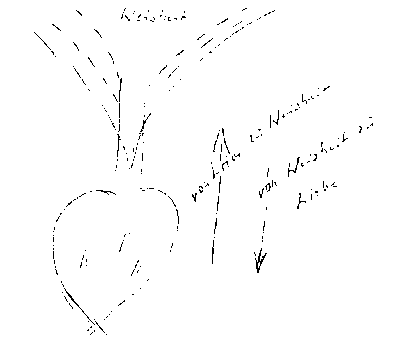Chthonic gods: Difference between revisions
No edit summary |
No edit summary |
||
| Line 1: | Line 1: | ||
'''Chthonic gods''' or '''Chthonioi''' ({{Greek|Χθόνιοι θεοί, Χθόνιοι}}; from ''chtonios'' {{lang|grc| | '''Chthonic gods''' or '''Chthonioi''' ({{Greek|Χθόνιοι θεοί, Χθόνιοι}}; from ''chtonios'' {{lang|grc|χϑόνιος}} "belonging to the earth", also meaning "underground", "belonging to the underworld"), also called '''lower gods''' by [[Rudolf Steiner]], work - in contrast to the [[upper gods]] such as [[Apollo]] - through the earth's depths. They include the [[Titans]], who were plunged into the [[underworld]] by [[Zeus]]. [[Demeter]] and [[Hecate]] were also given the epithet {{lang|grc|ἡ χϑονία}} - the subterranean. [[Dionysus]] also belongs to the chthonic gods, who were therefore also worshipped by name in the [[Dionysian Mysteries]], and likewise also underworld gods such as [[Hades]]. The [[Cabiri]] of [[Samothrace]] are also chthonic gods. | ||
To be initiated into the secrets of the lower gods, the student of the spirit had to descend into the underworld or into his own inner being, i.e. into the [[microcosm]]. The upper gods, on the other hand, can be known by extending one's [[consciousness]] into the [[macrocosm]]. | To be initiated into the secrets of the lower gods, the student of the spirit had to descend into the underworld or into his own inner being, i.e. into the [[microcosm]]. The upper gods, on the other hand, can be known by extending one's [[consciousness]] into the [[macrocosm]]. | ||
| Line 35: | Line 35: | ||
== Literature == | == Literature == | ||
* [[Rudolf Steiner]], Matthew Barton (Translator), Hella Wiesberger (Introduction): ''Soul Exercises: Word and Symbol Meditations, 1903–1924''. [[CW 267]]. SteinerBooks 2014. ISBN 978-0880106283 | |||
=== German === | |||
* [[Rudolf Steiner]]: ''Seelenübungen'', [[GA 267]] (2001), ISBN 3-7274-2670-5 {{Lectures|267}} | * [[Rudolf Steiner]]: ''Seelenübungen'', [[GA 267]] (2001), ISBN 3-7274-2670-5 {{Lectures|267}} | ||
Latest revision as of 08:09, 28 June 2022
Chthonic gods or Chthonioi (Greek: Χθόνιοι θεοί, Χθόνιοι; from chtonios χϑόνιος "belonging to the earth", also meaning "underground", "belonging to the underworld"), also called lower gods by Rudolf Steiner, work - in contrast to the upper gods such as Apollo - through the earth's depths. They include the Titans, who were plunged into the underworld by Zeus. Demeter and Hecate were also given the epithet ἡ χϑονία - the subterranean. Dionysus also belongs to the chthonic gods, who were therefore also worshipped by name in the Dionysian Mysteries, and likewise also underworld gods such as Hades. The Cabiri of Samothrace are also chthonic gods.
To be initiated into the secrets of the lower gods, the student of the spirit had to descend into the underworld or into his own inner being, i.e. into the microcosm. The upper gods, on the other hand, can be known by extending one's consciousness into the macrocosm.
On the relationship of the upper gods to the lower gods, Rudolf Steiner gave Ernst Stegemann around 1907 the meditation "Liebe trag ich im Wesenskern" (Love I carry in the core of my being) (Lit.:GA 267, p. 447):
See also
Literature
- Rudolf Steiner, Matthew Barton (Translator), Hella Wiesberger (Introduction): Soul Exercises: Word and Symbol Meditations, 1903–1924. CW 267. SteinerBooks 2014. ISBN 978-0880106283
German
- Rudolf Steiner: Seelenübungen, GA 267 (2001), ISBN 3-7274-2670-5 English: rsarchive.org German: pdf pdf(2) html mobi epub archive.org
 |
References to the work of Rudolf Steiner follow Rudolf Steiner's Collected Works (CW or GA), Rudolf Steiner Verlag, Dornach/Switzerland, unless otherwise stated.
Email: verlag@steinerverlag.com URL: www.steinerverlag.com. Index to the Complete Works of Rudolf Steiner - Aelzina Books A complete list by Volume Number and a full list of known English translations you may also find at Rudolf Steiner's Collected Works Rudolf Steiner Archive - The largest online collection of Rudolf Steiner's books, lectures and articles in English. Rudolf Steiner Audio - Recorded and Read by Dale Brunsvold steinerbooks.org - Anthroposophic Press Inc. (USA) Rudolf Steiner Handbook - Christian Karl's proven standard work for orientation in Rudolf Steiner's Collected Works for free download as PDF. |

